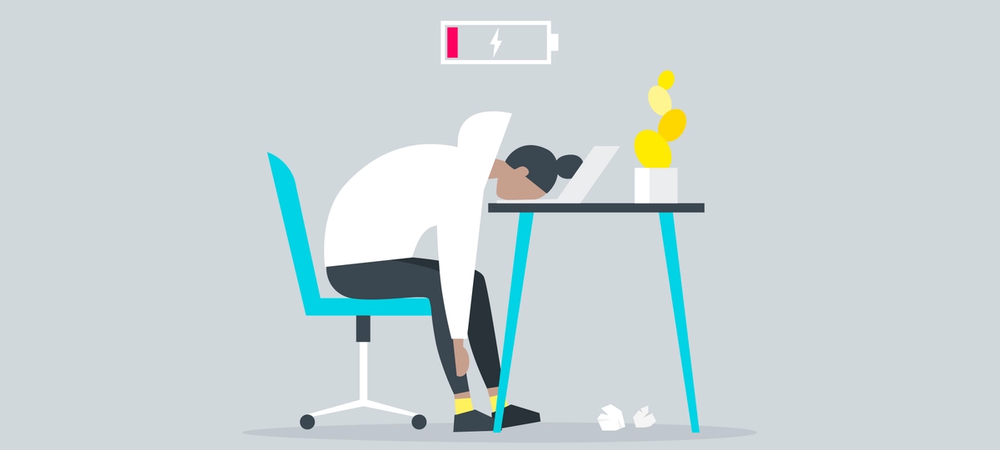Knock Out your Burnout

It has been a full year with the pandemic, a full year of uncertainty and isolation which has left a heavy impact on most of the public. The measures to stay inside and limit exposure has changed everyday life. Working from home, ordering groceries online, and even booking virtual appointments for medical needs are becoming the normality. The environment variety has been limited and the social contact comes with moral obstacles. Days blend into weeks and weeks into months and so often we are left wondering what day it is. This monotonous lifestyle of repetition can cause stress and fatigue which can often lead to burnout.
What is burnout?
“Burnout is a state of emotional, physical, and mental exhaustion caused by excessive and prolonged stress. It occurs when you feel overwhelmed, emotionally drained, and unable to meet constant demands.”
Burnout can cause a lack of interest and motivation. It can become a drain on energy and can have long-term effects on the body that can compromise your immune system. A common issue with burnout, is that it can sneak up on you. The effects and signs are subtle at first but can degrade over time. People will sometimes notice symptoms of burnout after many months have gone by.
So how can you spot it?
It is important to be introspective and ask yourself questions. According to helpguide.org, here are some of the common emotional, physical, and behavioral signs of burnout:
Feeling tired and drained most of the time.
Lowered immunity, frequent illness.
Withdrawing from responsibilities.
Isolating yourself from others.
Skipping work or coming in late and leaving early.
Sense of failure and self-doubt.
Feeling helpless, trapped, and defeated.
Loss of motivation.
Decreased satisfaction and sense of accomplishment.
Burnout can be caused by work-related or lifestyle issues. The effects of a year of coronavirus can play a factor in a possible cause of burnout. If this resonates with you, then you or a loved one you know might be experiencing burnout.
What steps can you take to help?
Change up your day-to-day routine.
Changing up your routine can stimulate your brain. The repetitiveness restricts our cognitive functioning. Monotony can influence the decline of cognitive functioning and decrease performance. Due to the current lockdown, it has been difficult to go out and change up routines, but that should not stop you. The changes you make can be small. Try changing up where you work, if you have a laptop try taking your work to another room or even outside. If you are often sitting at a desk, make a habit of getting up to stretch, maybe do some exercise, or even dance. Try rearranging your furniture, it might freshen up your living space.
Work boundaries.
Set work boundaries and try to recognize signs of overwork. If you are experiencing heavy symptoms of stress, if possible, take some time off. If you cannot, try to rephrase the way you view your job, a study from Professor Jane E. Dutton and associate professors Gelaye Debebe and Amy Wrzesniewski co-authored the paper, “Being Valued and Devalued at Work: A Social Valuing Perspective” where they investigated the power of job crafting and the effects it had on their subjects. Those that reshaped and changed their outlook on their work to make it more purpose-driven tended to enjoy their jobs.
Practice Mindfulness.
Check-in with yourself, a lot of people associate mindfulness with meditation but that is not always the case. You can be present and mindful doing all sorts of tasks. It can be reading a book, watching your favorite show, chatting with a close friend. If you are present in those moments and not occupied with day-to-day worries it can help combat burnout. Take the time (5-10 minutes) to reflect on the positives, you can set aside time to even write them down in a journal.
Turn to others.
Reach out to close friends and family, it can be hard when you are experiencing burnout, but community and communication are important. Socializing can have a positive effect to calm your nervous system and relieve stress. Although if you feel like you need extra aid, Mental health providers are here to help identify more complex negative behavior patterns and can help with a treatment plan. If you or a loved one feel like you cannot do it alone, please reach out. We are here to help.